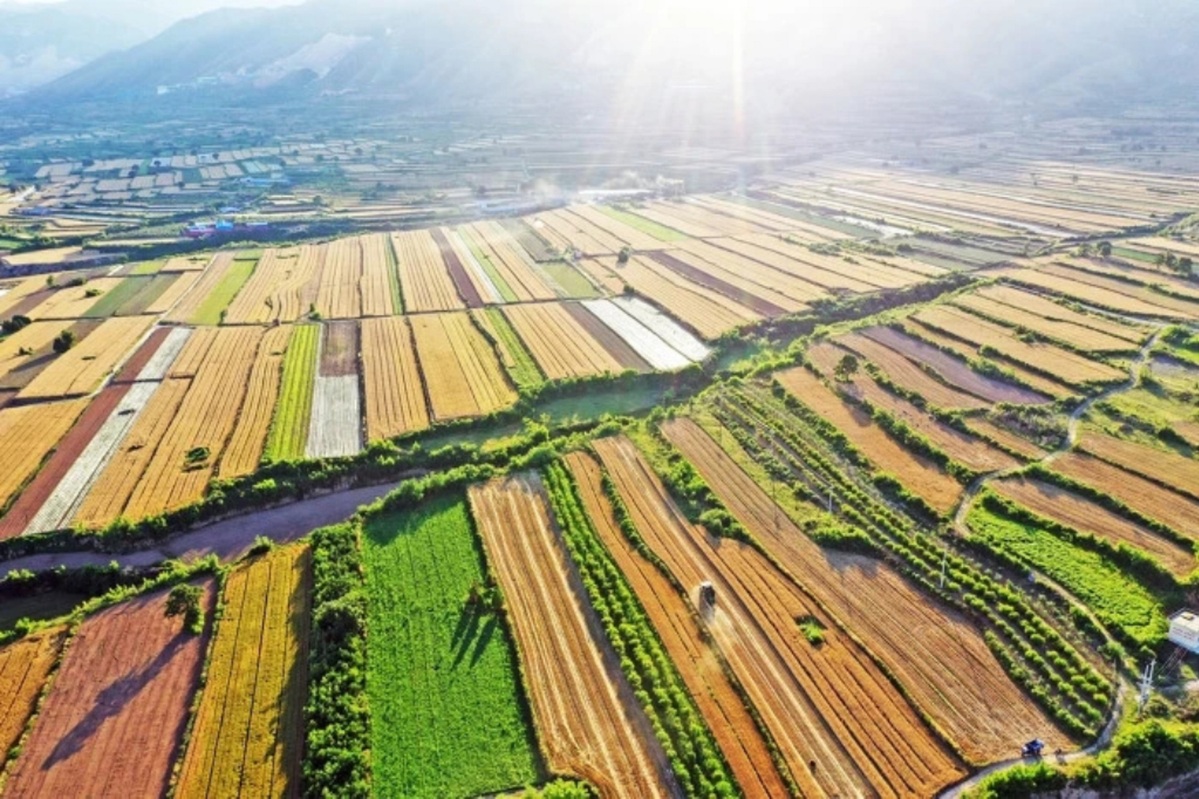Nation tops list of agricultural academic papers, patents
By Li Lei in Nanjing | China Daily | Updated: 2023-12-07 09:39

Chinese researchers published over 300,000 studies from 2018 to 2022
An analysis of 22 major food-producing countries has found that China is leading the world in the number of influential academic papers and patents in agriculture.
However, a senior agricultural official said there's still a sizable gap between the country and conventional agricultural powerhouses such as the United States.
According to the study by the Chinese Academy of Agricultural Sciences, whose findings were published at a forum in Nanjing, Jiangsu province, on Wednesday, China tops a global ranking that measures the influence of agricultural papers produced by researchers from countries including the US, Germany, India and the United Kingdom.
The analysis said Chinese researchers published more than 303,000 agricultural papers between 2018 and 2022, more than any other surveyed country. The US was the second most productive country with 211,000 such papers, followed by Brazil, India and Germany.
A total of 2,926 Chinese papers were classified as high-citation papers — a gauge of innovation capacity. The number is higher than any other surveyed country during the 2018-22 period, and accounts for about 27 percent of all frequently cited papers produced by the surveyed countries.
The US (1,738) and the UK (634) have the second- and third-highest number of such papers, the academy said.
China also has the largest number of papers published in the world's highest-ranking journals, it said.
Chinese papers were most influential in fields including crop science, horticulture and agricultural machinery and engineering, the academy added.
In a news release, the academy said the papers — many of which were published in the top three science journals Cell, Nature and Science — have greatly contributed to the country's know-how in the fields of food security, climate change, gene-editing and breeding.
"The large-quantity-but-low-quality problem besetting Chinese agricultural papers has been improved, which opens a new chapter of balanced development of quantity and quality in agricultural research," the release said.
The analysis also found that China followed the US as the second most competitive country in the realm of agriculture-related patents.
China applied for about 576,700 such patents over the past five years — more than any other surveyed country and 3.7 times that of the US, which occupied second place.
China has maintained a competitive edge in areas ranging from animal nutrition and feed, to plant nutrition and fertilizer, and agricultural robots. The number of patents filed by Chinese applicants in these areas is about 70 percent of the 22 countries combined.
However, the academy noted that China is at the bottom of the 22 countries in the share of overseas patents, and PCT patents that allow patent holders to seek protection for an invention simultaneously in a large number of countries under the Patent Cooperation Treaty.
China's rising position as a farming innovator epitomizes the increased efforts by the world's largest food consumer to fund agricultural research over the past decade in hopes of bolstering national food security and meeting the need for nutritious food for the country's growing middle-income group.
While addressing the 2023 China Agricultural and Rural Science and Technology Development Forum in Nanjing, Wu Kongming, president of the academy and a senior Party official with the Ministry of Agriculture and Rural Affairs, said progress in farming research has propelled China into the rank of the world's top-echelon of food producers.
The recent rollout of homegrown farm animal varieties, such as white-feathered chickens, and the breakthrough in supplying itself with some farming machinery spare parts, have helped China weaken the West's monopoly on such technologies.
"Technology is behind the historic achievement that has been made by China in turning itself into a powerful country," he said.
Wu stressed that farming technologies and equipment are playing a bigger part in increasing food yield, and have provided a boon to the national food supply. Smart farming technologies such as pesticide-spraying drones and unmanned plowing machines have also made food production more efficient.
He said agricultural self-reliance is an integral part of China's strategic competitive edge.
Despite recent progress on that front, China still lags behind conventional agricultural powerhouses in innovation capabilities, and some key technologies are still under the threat of being boycotted by other countries, Wu said.
























